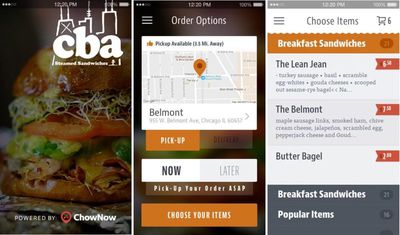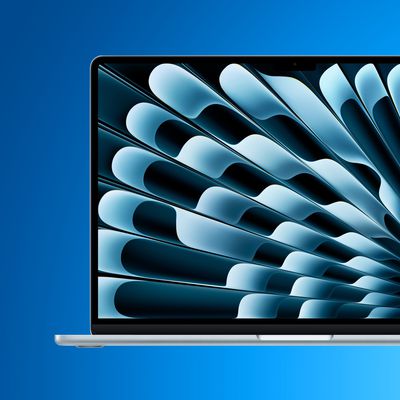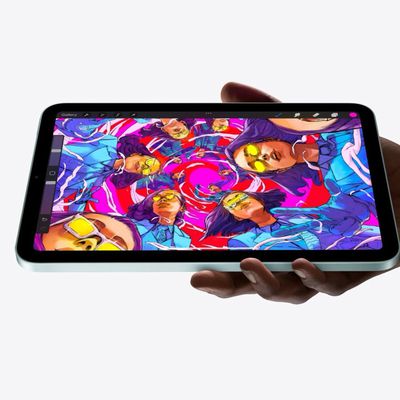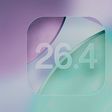Apple in June tweaked its App Store Review guidelines to add a new rule banning apps created from a commercialized template or app generation service, a move that ended up impacting small businesses without the resources to independently develop an app.
Many niche template-created apps for small restaurants, retailers, and other businesses were not allowed under the new rule, which also affected the companies that build those sorts of apps. Following media attention and feedback from small business owners, Apple today amended the rule to make it less restrictive, reports TechCrunch.

The original rule, in section 4.2.6 of the App Store guidelines, read "Apps created from a commercialized template or app generation service will be rejected." The new wording of the rule, located below, is more expansive and clarifies exactly what's allowed and what's not.
Apps created from a commercialized template or app generation service will be rejected unless they are submitted directly by the provider of the app's content. These services should not submit apps on behalf of their clients and should offer tools that let their clients create customized, innovative apps that provide unique customer experiences. Another acceptable option for template providers is to create a single binary to host all client content in an aggregated or "picker" model, for example as a restaurant finder app with separate customized entries or pages for each client restaurant, or as an event app with separate entries for each client event.
Under the revised guidelines, small businesses that use template-style apps can continue to use them, but those apps must be submitted by the business itself rather than the template provider. Apple also suggests template providers can create something like a restaurant finder app, with the ability to search for all client restaurants rather than creating individual cookie cutter apps for each restaurant.
All apps published on the App Store going forward will need to be handled by the business or organization behind the app, and to make the transition simple, Apple is going to waive its $99 developer fee for government and nonprofit apps in the U.S. in early 2018.
In addition to changing its template app guidelines, Apple today tweaked a few other rules. Apps that offer in-app purchase "loot boxes" or other mechanisms that include randomized virtual items are now required to disclose the odds of receiving each type of item.
Apple has also clarified that virtual currency apps offering Initial Coin Offerings (ICOs), cryptocurrency futures trading, and other crypto-securities or quasi-securities trading must come from established banks, securities firms, futures commission merchants, or other approved financial institutions.
One last rule applies to VPN apps. Apps that offer VPN services are required to use the NEVPNManager API and must make it clear what user data is collected and how it is used. VPN apps must also follow local laws, and VPN apps in a territory where a VPN license is required must provide license information in the App Review Notes field when submitting an app.
Apple's full App Store review guidelines are available on its developer website.



















Top Rated Comments
Our typical clients are small businesses, non-profits and local government entities with 10 - 100 employees. The majority are small business across a range of vertical markets including architecture, construction, legal, manufacturing, medical, dental, vision, retail sales, commercial sales, etc. You name it and we’ve likely got one or more clients in most major vertical markets.
Bar none the owners of these business, non-profits or leaders of local government entities come to us because they don’t have the in-house IT knowledge required for things like this.
When a client who uses us for their day-to-day IT needs approaches us and want an app 95% of them don’t have the money required to hire a firm that will produce a custom app for them from the ground up. We find a reputable customizable app template provider who provides apps for their line of business and send our clients their way. That firm then takes care of everything for them and everybody is happy.
Now our company will be tasked with being the official app middleman. The firm we pass the business to needs us, acting on our mutual clients behalf as if we’re their in-house IT department, to create the Apple Developer account, submit the app and revisions and deal with rejections, etc.
We’d much rather focus on delivering the core services we provide in-house and putting clients in touch with reputable firms that handle things we don’t deal with like developing and maintaining websites, mobile websites, apps on iOS and Android, etc.
Apple should implement a registration process for legitimate firms that want to publish template apps or slightly customized template apps on behalf of small businesses. That way Apple knows who the firm is and which apps they are handling on behalf of small businesses without the means to handle things in-house. If a firm is engaging in conduct detrimental to its clients, the App Store or violating developer guidelines then the onus would be on Apple to shut them down. Firms acting in this manor should be required to upload source code for the apps so that if a firm is shut down the small businesses the firm was representing will have the ability to pull down the source code and pass it onto another firm or an in-house developer to make whatever changes are required to address the underlying issues with the app.
Instead Apple is taking the lazy/cheap route to addressing issues that stem from these business relationships and putting the onus and costs on the small businesses in question. Bad form Apple. You’ve got hundred of billions of dollars sitting in the bank. Spend a tiny fraction of it on helping to create a better experience for small businesses that have to subcontract these things to other firms.
It’s surprising to me that Apple hasn’t cracked down on what are ostensibly gambling apps like they have with other categories they feel don’t provide a wholesome experience for the store (e.g. porn).
I have an app that sells art work bundles in-app, it's a sort of sub-store.
A rival developer publishes each art collection as a separate app using their own template.
So now my app can be found by users searching the store for the art, not the app.
I've been wondering if Apple would come down on my rival for templating.
Apple has also had a policy for some years now of "all in one app" being preferable to cluttering up the store with lots of apps. A cluttered store makes search/discovery difficult for users.